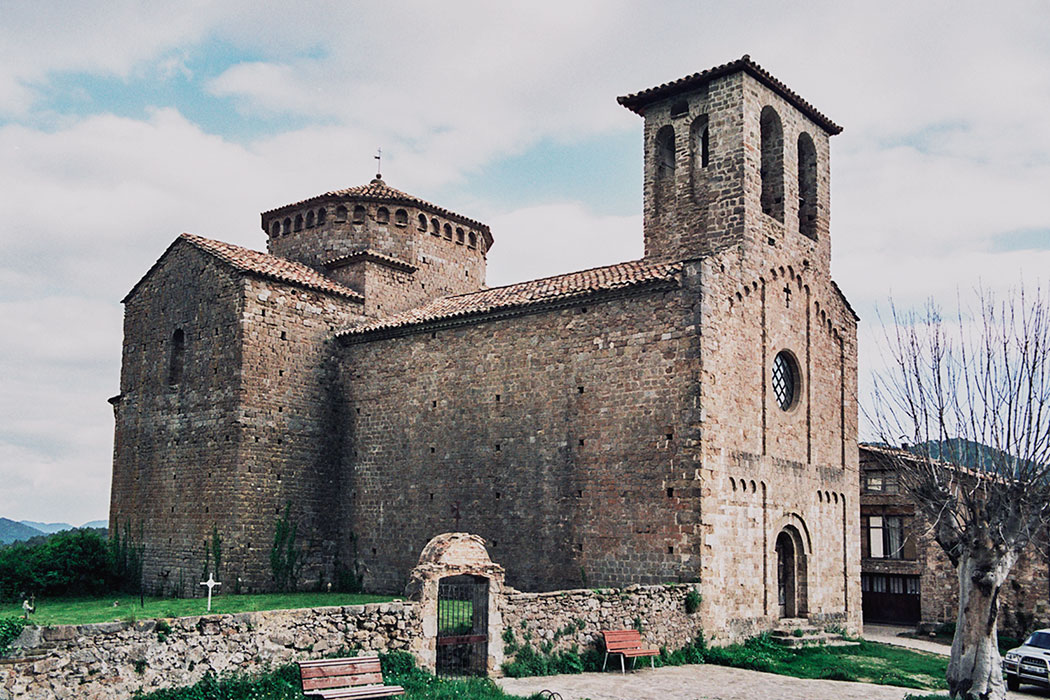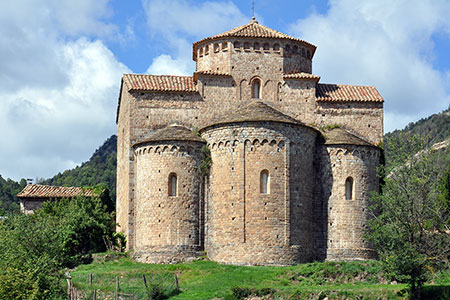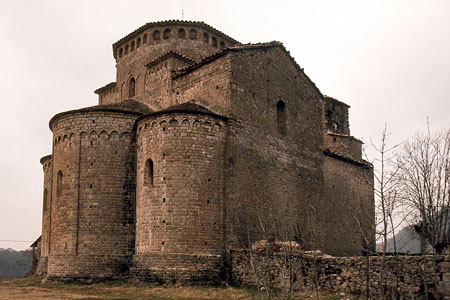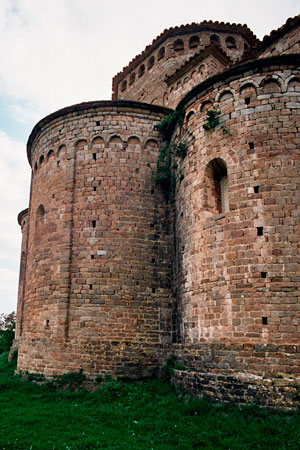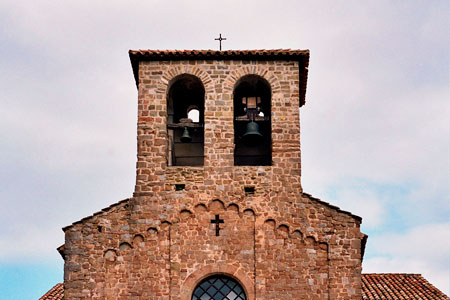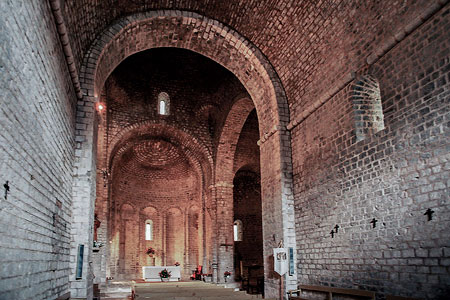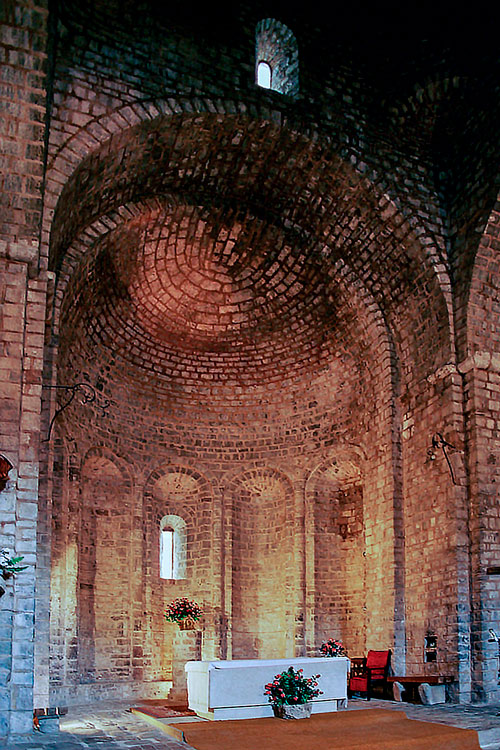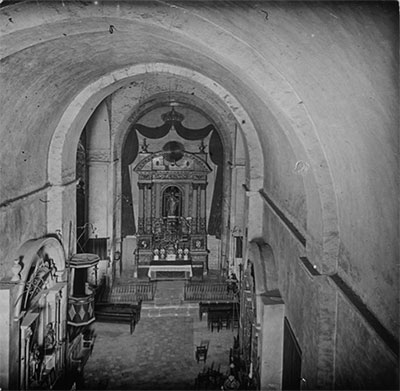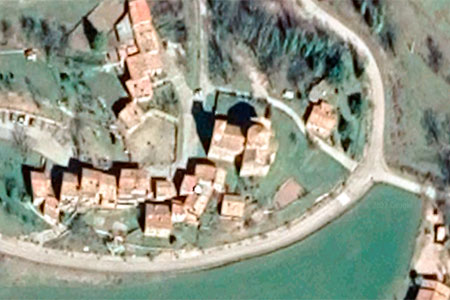Canonry of Sant Jaume de Frontanyà
Sancti Iacobi Frontengnado / Frontenyà
(Sant Jaume de Frontanyà, Berguedà)
The origin of the canonry of Sant Jaume de Frontanyà is to be found in an earlier church, also dedicated to Sant Jaume, which was in an elevated place, to the west of the present one. It is possible that an organised community already existed in Sant Jaume de Frontanyà Vell, and it would have been the good location of the establishment, which also had parish functions, that made it appropriate to move to a more suitable place.
The construction of the new temple likely began around 1060 and may have extended until the end of the century. In fact, the first reliable record of this community dates from 1066, in a donation made in its favor by Arnau Mir de Tost. In 1140, a regularly organized Augustinian canonry was established, continuing the previous community. With this new organization, the community began a period of great vitality, during which it headed a wide range of dependent churches.
Until 1395, the house was under the direction of resident priors, but from then on, commendatory abbots were introduced, who gradually appropriated its assets, marking the beginning of its decline. The canonry was secularized by the Pope in 1592, a process that became widespread among Augustinian canonries. The community gradually dwindled, while the church came under the jurisdiction of the Diocese of Solsona, which was established around that time. Today, all monastic buildings (such as the cloister) have disappeared, except for the magnificent church, a single-nave building with a transept featuring three apses.
- GAVÍN, Josep M. (1985). Inventari d'esglésies. Vol. 17. Berguedà. Barcelona: Arxiu Gavín
- MARTÍNEZ SOLSONA, Francesc (1967). Sant Jaume de Frontenyà. Mil anys d'història i geografia. Granollers: Montblanc
- SERRA i ROTÉS, Rosa; VIGUÉ, Jordi (1985). Sant Jaume de Frontanyà. Catalunya Romànica. Vol. XII. El Berguedà. Barcelona: Enciclopèdia Catalana
- VINYETA, Ramon (1978). Sant Jaume de Frontanyà i l'alta vall del riu Merlès. Torelló: Celblau
